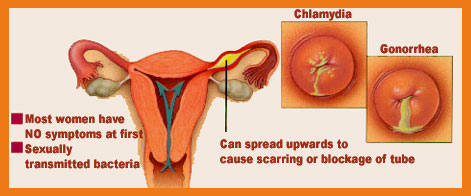
Dr. ROY MEDICAL HALL
Jaffer Khan Colony | Calicut | Kerala | IndiaSexologist Doctor - Sexology Clinic
+91 9349113791
Established in 1960

Dr. ROY MEDICAL HALL
Jaffer Khan Colony | Calicut | Kerala | IndiaSexologist Doctor - Sexology Clinic
+91 9349113791
 Leucorrhoea commonly known as white refers to a whitish discharge from the female genitals. The vaginal discharge plays an important role in maintaining a healthy vagina. The secretions are designed to flush out bacteria and other tiny organisms to prevent infection. Normal vaginal discharge is odorless and a clear or pale milky color.
Leucorrhoea commonly known as white refers to a whitish discharge from the female genitals. The vaginal discharge plays an important role in maintaining a healthy vagina. The secretions are designed to flush out bacteria and other tiny organisms to prevent infection. Normal vaginal discharge is odorless and a clear or pale milky color.
Recent investigations have shown that secretions from the uterus and upper part of the vagina flow down and are reabsorbed in the lower parts of the vagina. This is the normal constant flow within the female organs. The whitish discharge is, however, caused by the presence of infection in any of these issues and a variety of other factors. The condition may continue for weeks or months at a time.
Two types of Leucorrhoea
There are two types of Leucorrhoea, physiological and pathological. In physiological Leucorrhoea, the discharge is normal due to excitement or other factors like nervousness. Such a discharge need not be worried about. It is found under the following conditions:-
In pathological Leucorrhoea the causes are:-
Symptoms
 The patient feels weak and tired. She also suffers from pain in the lumbar region and the calves and a dragging sensation in the abdomen. Other symptoms are constipation, frequent headaches, and intense itching. In the chronic form, the patient feels irritable and develops black patches under the eyes
The patient feels weak and tired. She also suffers from pain in the lumbar region and the calves and a dragging sensation in the abdomen. Other symptoms are constipation, frequent headaches, and intense itching. In the chronic form, the patient feels irritable and develops black patches under the eyes
Causes
Leucorrhoea does not develop suddenly in an acute form. It denotes a devitalized and toxic condition of the system generally. The condition also involves one or many parts of the reproductive organs. Whenever the body is loaded with toxins due to wrong dietary habits and the eliminative organs such as skin, bowels, lungs, and kidneys are unable to eliminate the toxins, the body produces a profuse discharge or elimination through the mucous membrane of the uterus and vagina in the form of leucorrhoea. In the case of advanced, chronic inflammatory conditions of these organs, it leads to discharge with pus, offensive in odor, and color varying from cream to yellow or light green.
In young girls, leucorrhoea may occur during the few years before and after the start of the menstrual flow. It may be due to an irritation of the genital organs caused by various factors such as dirt, soiled undergarments, intestinal worms, and excessive mental stimulation of sex or masturbation.
Some excess secretion is normal when the girl reaches puberty, due to overactivity in her sex glands and organs. This usually disappears within a short time.

In young women, leucorrhoea may occur during intermenstrual periods, due to the thickening of the mucous membrane in the reproductive organs. Such a discharge is associated with painful menstruation and other menstrual disorders.
In mature women, a profuse yellowish discharge, associated with burning on urination, may be caused by gonorrhea. This is a serious infection that should be treated promptly. During the child-bearing years, from adolescence to the mid-forties, the infection may sometimes follow the birth of a child due to damage to the cervix during delivery. This is increased by prolonged ill-health, anxiety, neurosis, sedentary occupation, and standing for long periods. If not treated properly, this infection may continue for months or even years and may spread to other areas of the genital tract.
Leucorrhoea may also result from a chill. A chill causes inflammation of the womb and vaginal membranes. Other common causes are the displacement of the womb and unhygienic conditions which attract bacteria to the genital organs.
When to seek treatment
When abnormal discharge indicates irritation, inflammation and the discharge color is greenish, yellowish, or even brownish with thick or lumpy in consistency and has a foul smell. It is always a good idea to see a doctor because any of the conditions the cause is required medical attention.
You can take these steps to decrease the likelihood of occurrences: -
MOBILE
+91 93491 13791
+91 88484 73488
|
Click for Online Consultation Form
|